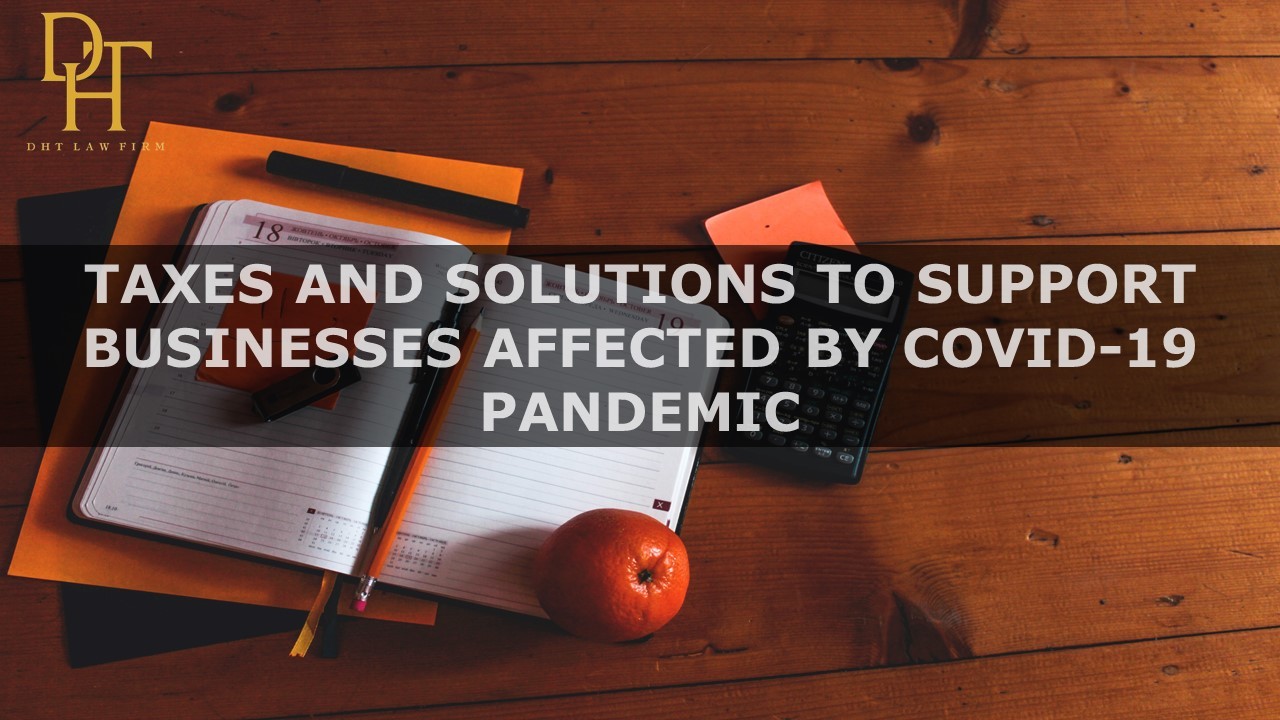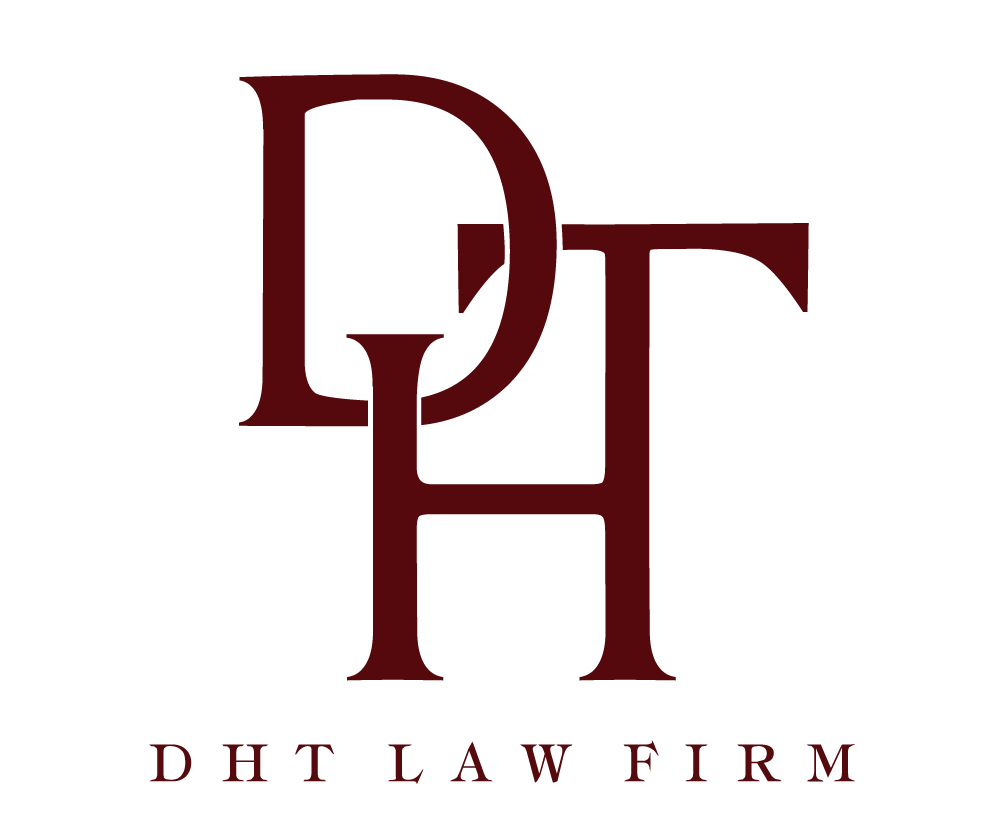
TAXES AND SOLUTIONS TO SUPPORT BUSINESSES AFFECTED BY COVID-19 PANDEMIC
TAXES AND SOLUTIONS TO SUPPORT BUSINESSES AFFECTED
BY COVID-19 PANDEMIC
The COVID-19 pandemic has seriously affected all aspects of life, economy - society. COVID-19 has had a negative impact on the production and business activities of businesses, and the world economy fell into a recession. Like other countries in the world, Vietnam has been severely damaged by this global pandemic. Facing the serious impact of COVID-19, the State of Vietnam has issued many policies to support businesses in difficulty, thereby promoting production and business development, and economic recovery. On October 19, 2021, the National Assembly Standing Committee signed Resolution No.406/NQ-UBTVQH15 on promulgation of certain measures for supporting enterprises and residents to ease the impact of the COVID-19 pandemic. Proposing this Resolution to be implemented soon, the Government issued Decree no 92/2021/NĐ-CP guiding 04 groups of tax exemption and reduction solutions to support people, business households and businesses to overcome the pandemic. In which, enterprises are supported by 3 solutions by the State: (i) Reducing corporate income tax; (ii) Reducing value-added tax; (iii) Exemption of late payment.
I. Reducing corporate income tax
1. Subjects of application
- Enterprises that are established in accordance with Vietnam's law.
- Organizations that are established in accordance with the Law on Cooperatives.
- Public service providers that are established in accordance with Vietnam's law.
- Other organizations that are established in accordance with Vietnam's law and earn income from business operations.
(Hereinafter referred to as “Enterprise”)
2. Determination of CIT eligible for reduction
According to Article 1 of Decree No.92/2021/ND-CP, enterprises whose revenue in the tax period of 2021 does not exceed 200 billion VND and is smaller than the revenue earned in the tax period of 2019.will be entitled to a 30% reduction in CIT payable in 2021.
The revenue earned in the tax period of 2021 does not have to be smaller than the revenue earned in the tax period of 2019 in case the enterprise is newly established, undergoes consolidation, merger, full division or partial division in the tax period of 2020 and 2021.
3. How to calculate the number of CITs to be reduced?
In Article 1.3 of Decree No.92/2021/ND-CP, The enterprise's entire revenue shall be the basis for calculation of CIT eligible for reduction of the tax period of 2021, including the revenues specified in the Law on Corporate Income Tax. CIT eligible for reduction prescribed in this Decree shall be calculated according to the CIT payable in the tax period of 2021 minus (-) the CIT eligible for incentives according to the Law on Corporate Income Tax and its guiding documents.
From there, we have the formula for the amount of corporate income tax to be reduced:
4. Declaration of tax reduction
This part is specified in Clause 4, Article 1 of Decree No.92/2021/ND-CP. Enterprises will base themselves on the revenue in the 2019 tax period, and the expected revenue in the 2021 tax year, to determine the tax amount to be reduced when temporarily paying corporate income tax on a quarterly basis. Enterprises make declarations according to the declaration form (Form 7) issued under Circular 80/2021/TT-BTC.
In case a tax authority or competent authority, through inspection or audit, discovers that the enterprise is not eligible for tax reduction or the tax payable in 2021 is greater than the tax declared by the enterprise, the enterprise shall pay the arrears after reduction is applied, incurring administrative penalties and pay late payment interest in accordance with regulations of law on tax administration and handling of administrative violations. In case the CIT is increased after the enterprise supplements the CIT declaration dossier of 2021 or according to the inspection or audit verdict issued by the tax authority or competent authority, the increase in CIT will be reduced by 30% according to this Decree if the enterprise still satisfies the conditions for tax reduction specified in Clause 2 of this Article.
II. Reducing value-added tax
1. Subjects of application
According to Decree No. 92/2021/ND-CP, from November 1, 2021 to the end of December 31, 2021, businesses trading in the following services and goods are entitled to a reduction in value-added tax:
Services and goods in group 2 do not include software, goods and services that are sold online. The detailed list of goods and services eligible for VAT reduction mentioned in Point a and Point b of this Clause is provided in Appendix 1 of this Decree. The above goods and services are not subject to value-added tax, they are not entitled to deduction and refund of input value-added tax, unless the tax rate of 0% is applied.
2. VAT reduction rates
3. Procedures
When the enterprise or organization that applies the credit-invoice method to calculate VAT prepares the VAT invoice, write "mức thuế suất theo quy định (5% hoặc 10%) x 70%" ("regulatory VAT rate (5% or 10%) x 70").
When an enterprise or organization that calculates VAT using the direct method (as a percentage (%) on revenue) prepares the invoice for goods and services that are eligible for VAT reduction, write the amount before reduction in "Thành tiền" ("Amount") column; write 30% reduction on "Cộng tiền hàng hóa, dịch vụ" ("Total amount") line; and write "đã giảm... (số tiền) tương ứng 30% mức tỷ lệ để tính thuế giá trị gia tăng theo Nghị quyết số 406/NQ-UBTVQH15" ("reduced by ... (30%) according to Resolution No. 406/NQ-UBTVQH15").
Some special cases are specified in Clause 4, Clause 5, Clause 6 Article 3 of Decree No.92/2021/ND-CP.
III. Exemption of late payment interest
Article 4 Decree No.92/2021/ND-CP specifies that enterprises and organizations are exempt from late payment interest incurred in 2020 and 2021 on all outstanding tax (VAT, CITs,…), land levies, land rent.
- Determination of exempted late payment interest
Supervisory tax authorities, tax authorities responsible for the management of tax, land levies, and land rents shall determine the late payment interest incurred in 2020 and 2021 according to the tax administration database and issue late payment interest exemption decisions.
- Authority to exempt late payment interest
Heads of supervisory tax authorities and tax authorities responsible for management of tax, land levies and land rents shall issue late payment interest exemption decisions to taxpayers.
- Procedures and application for exemption of late payment interest
Firstly, the taxpayer shall complete application form No. 01/MTCN in Appendix II hereof, specify the loss incurred in 2020 and send it to the supervisory tax authority or the tax authority responsible for management of tax, land levy or land rent electronically, in person or by post.
The loss incurred in the tax period 2020 shall be determined in accordance with CIT laws. From that, total revenue and other income after subtracting deductible expenses and tax-free income is negative, then it is the loss of the business. These losses do not include losses carried forward from previous years.
If the taxpayer has been inspected, examined or audited, the minutes or decisions, conclusions and notification of inspection, examination and audit results must be enclosed (the original or a copy certified by the taxpayer).
Secondly, the tax authority responsible for management of tax, land levy or land rent shall cooperate with the supervisory tax authority in verifying the loss incurred in 2020, which is the basis for granting exemption of late payment interest.
Within 15 working days from the receipt of the taxpayer's application form, the tax authority shall issue the notice of rejection (Form No. 02/MTCN in Appendix II hereof) if the taxpayer is not eligible, or issue the decision on exemption of late payment interest (Form No. 03/MTCN in Appendix II hereof) if the taxpayer is eligible for exemption.
The decision on exemption of late payment interest shall be sent to the taxpayer electronically and published on the website of tax authorities.
Thirdly, in case the taxpayer has been granted exemption of late payment interest but a competent authority discovers that the taxpayer is not eligible according to regulations of this Decree, the tax authority shall issue a decision to revoke the decision on exemption of late payment interest
The above is the advice of Dai Ha Thanh Law Firm on the provisions of Vietnamese law related to tax and solutions to support businesses affected by the COVID-19 pandemic. If you have any questions or issues, please contact us to receive professional legal advice.
